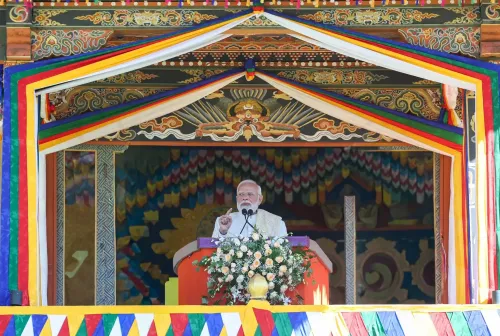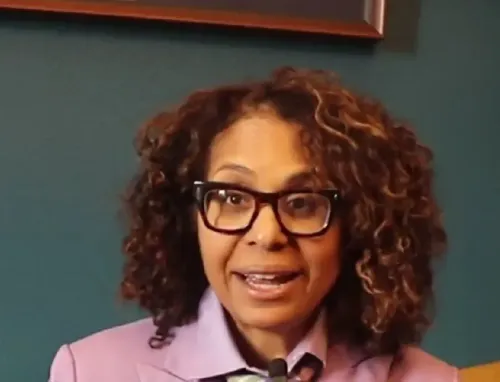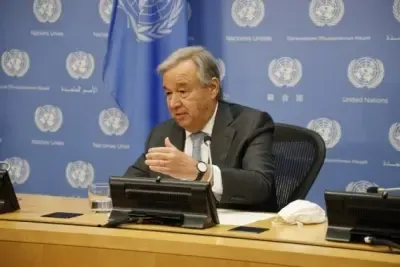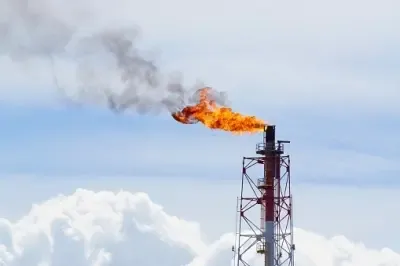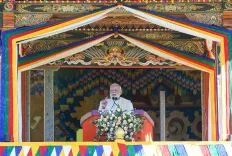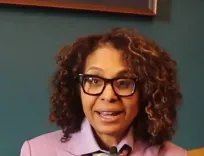How Did PM Modi Enhance Bilateral Cooperation with Russian Dy PM Patrushev?
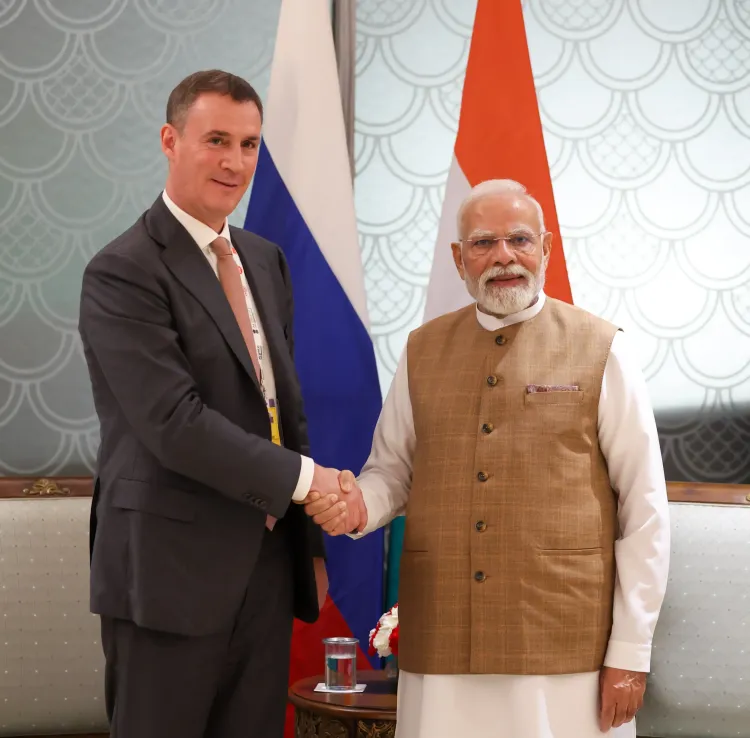
Synopsis
Key Takeaways
- PM Modi met Russian Dy PM Patrushev to discuss bilateral cooperation.
- Key sectors of collaboration include agriculture and defense.
- Russia is a partner at the World Food India 2025 event.
- PM Modi emphasized self-reliance and reducing dependence on foreign nations.
- Upcoming events include the India-Russia Annual Summit in December.
New Delhi, Sep 25 (NationPress) Prime Minister Narendra Modi held discussions with Russian Deputy Prime Minister Dmitry Patrushev on Thursday during the World Food India 2025 event, which he inaugurated at the Bharat Mandapam in the national capital.
The two leaders exchanged insights on boosting collaboration between India and Russia in sectors such as agriculture, fertilizers, food processing, and other areas of shared interest.
Via his official X account, PM Modi expressed: "It was a pleasure to meet Dmitry Patrushev at the World Food India 2025. We explored avenues to fortify our mutually beneficial ties in agriculture, fertilizers, and food processing."
Additionally, the Prime Minister extended his warm regards to Russian President Vladimir Putin and anticipated his upcoming visit to India for the 23rd India-Russia Annual Summit.
While inaugurating the Uttar Pradesh International Trade Show in Noida earlier that day, PM Modi highlighted Russia's role as the partner nation for the event, emphasizing that it exemplified the two nations' commitment to further fortifying their enduring partnership.
In recent weeks, the White House has urged New Delhi to reduce its ties with Moscow, particularly concerning its acquisition of Russian crude oil.
With President Putin set to visit India in December for the annual summit, the relationship between New Delhi and Moscow appears to be on a positive trajectory.
During his week-long visit to India, Patrushev, who oversees the agriculture and agro-products sector, discussed various strategic initiatives.
Russia is also a partner for World Food India, and PM Modi reiterated their commitment to strengthening their "time-tested partnership."
Despite pressure from the White House regarding oil purchases, it was indicated that US President Donald Trump and PM Modi may meet soon, likely during the East Asia Summit from October 26 to 28 in Kuala Lumpur.
Media reports suggest that Trump might also travel to India for the upcoming Quad Summit, projected to occur later this year or early 2026.
In his address in Noida, PM Modi highlighted the government's initiatives to foster a domestic defense production ecosystem, with Uttar Pradesh playing a pivotal role.
He also touched upon India-Russia defense collaboration, stating, "Production of AK-203 rifles will commence soon from a factory established in partnership with Russia."
The Prime Minister mentioned the development of a defense corridor in Uttar Pradesh, which will produce various weapons, including the ongoing production of BrahMos missiles.
According to an official statement, Russia's participation as a partner country in the trade show holds strategic significance, paving the way for enhanced bilateral trade, technology exchange, and long-term cooperation.
Over 2,400 exhibitors, 125,000 B2B visitors, and 450,000 B2C visitors participated in the trade show, highlighting its scale.
On a related note, US Energy Secretary Chris Wright remarked that the US looks forward to expanding energy cooperation with India, including in natural gas, coal, and nuclear energy.
"We hope India will collaborate with us on oil purchases—there are many nations to buy from, just not Russia. That's our stance," Wright stated.
In his address in Noida, PM Modi emphasized the advantages gained by citizens due to reductions in certain goods and services tax (GST) rates.
He urged citizens to support swadeshi products and reiterated his government's commitment to Atmanirbharta, or self-reliance.
"Dependence on others is the greatest helplessness," he declared, adding, "In a changing world, excessive reliance on others compromises a country's growth. India is determined to reduce dependence on foreign nations."

